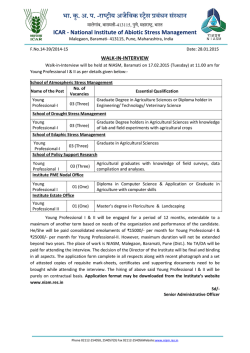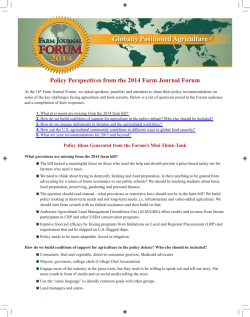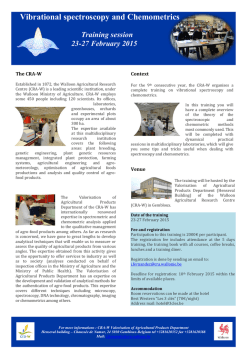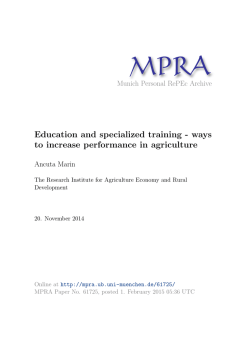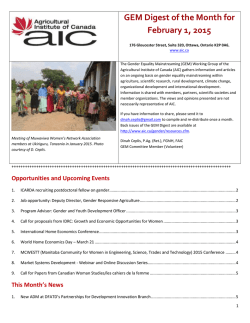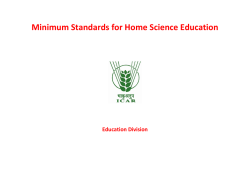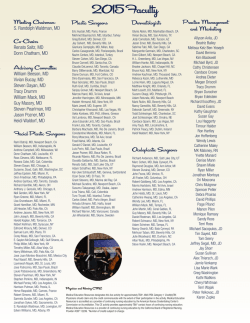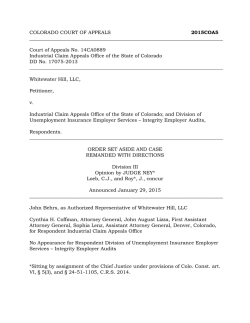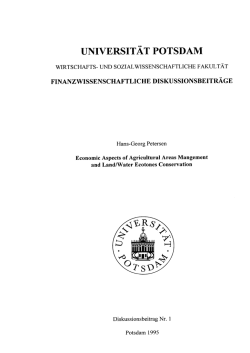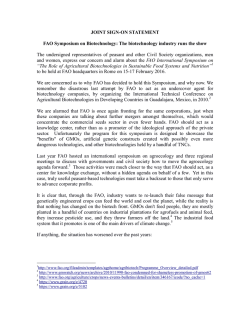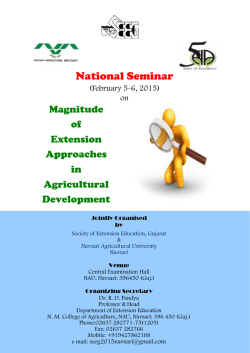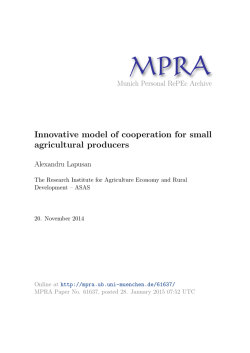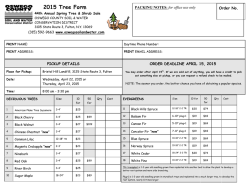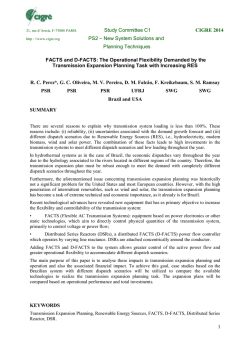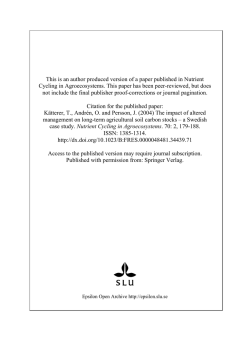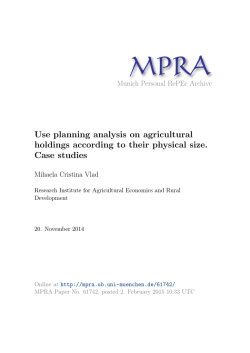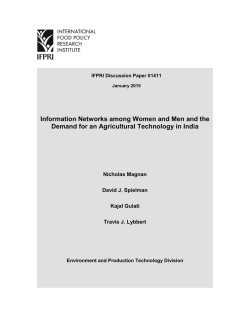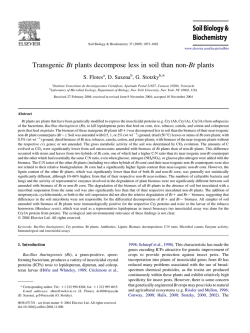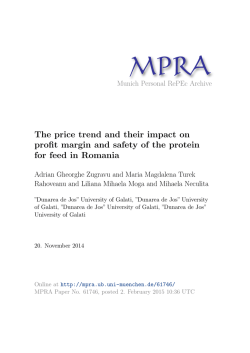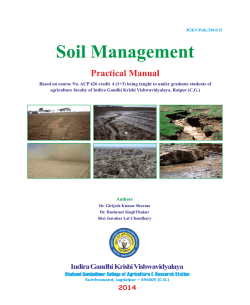
Professor Emeritus John T. Murdock
University of Wisconsin Madison Faculty Document 2531 2 February 2015 Memorial Resolution of the Faculty of the University of Wisconsin-Madison on the Death of Professor Emeritus John T. Murdock Professor emeritus John T. Murdock died suddenly on August 29, 2014 at his home in Murray, Kentucky. He was 86 years old. John was born on November 21, 1927 in Murray, and earned his B.Sc. and M.Sc. degrees from the University of Kentucky in 1951 and 1952. He was awarded the Ph.D. from the University of Wisconsin-Madison in 1955. His dissertation was titled “The Importance of Subsoil Phosphorus to Agronomic Crops,” completed under the guidance of Professor L. E. Englebert. John was appointed as an assistant professor in 1955, promoted to associate in 1960, and to full professor in 1968. Among the Ph.D. students that he mentored were three future faculty members of the college, Leo M. Walsh, Ronald E. Doersch, and Wayne R. Kussow. John was a passionate advocate for applying our understanding of soil to improving agriculture around the world, and to building institutions of higher education that could train agricultural scientists. While a faculty member at UW-Madison he was named in 1968 as assistant director of International Agricultural Programs of the then College of Agriculture. From 1973 to 1975 he served as associate director of International Agricultural Programs, and from 1975 to1980, the president and executive director of the Midwest Universities Consortium for International Activities (MUCIA). This campus and regional service to internationalizing both soil science and agricultural higher education were interleaved with overseas assignments that left indelible marks on the people, institutions, and places that he touched. John was at the front of the wave of American university scientists that spread out across the globe in the 1960s to bring modern agricultural practices to less-developed economies. He spent 16 years abroad during his 36-year career as a faculty member. In 1964 he joined other colleagues with specialties in various fields of agriculture as part of a contingent from the college to begin work under an institution-building contract (University of Wisconsin Contract AID/1a-147), funded by USAID, with the Universidade Federal do Rio Grande do Sul in Porto Alegre, Brazil. From 1964 to 1966 he was a soils specialist, and from 1966 to 1968 he served additionally as chief of party. He began teaching graduate level courses in soil science to several Brazilian students and led those students in establishing research plots in which extreme soil acidity and severe deficiencies in plant nutrients that were common in soils of southern Brazil were corrected simultaneously by applications of ground limestone and commercial fertilizers. Crop yield responses of tenfold or more were common. These results excited small farmers and leaders of agricultural cooperatives across the state. Leaders of the government of Brazil also took note and began supplying credit on favorable terms to farmers and other entrepreneurs who wished to produce, distribute and utilize lime and fertilizer. Agricultural production in southern Brazil skyrocketed. Some of John’s Brazilian students subsequently came to the United States, obtained Ph.D.s and returned to revitalize the Faculdade de Agronomia (equivalent of a College of Agriculture) at the Universidade do Rio Grande do Sul, and create a department of soil science within it. Today that department enrolls graduate students from across Latin America and beyond to study for M.S. and Ph.D. degrees in soil science. In May, 2014 the Universidade Federal do Rio Grande do Sul conferred on him a Doutor Honoris Causa (honorary doctorate) for the massive transformation he initiated both in the university and in the rural sectors of southern Brazil. After two years back in Madison, John took an assignment as the program coordinator of the MUCIA-AID-Indonesian Higher Education Project at the Institut Pertanian Bogor, (Bogor (continued) -2Agricultural University) in Bogor, Indonesia. Here his focus was institution building, and the basic four-year undergraduate curriculum, from general education requirements to specialized disciplinary instruction. He also began working on the graduate program during this assignment. John returned to Brazil for a one-year assignment (1972 to 1973) as a senior research advisor, to the Special Program for Agricultural Research, Ministry of Agriculture-USAID Loan Agreement, in Brasilia, Brazil. He returned again to Bogor from 1980 to1985 as the project director of the IPB/UW Graduate Education Project. At the end of this initiative in 1985 he was award an honorary doctorate from Institut Pertanian Bogor. From then until his death he returned annually to visit colleagues in Indonesia. John's commitment to international outreach led him to become fluent in Portuguese and in Bahasa Indonesian. His enthusiasm was shared by his wife and three children who accompanied him for most of his time abroad. From 1987 until his retirement in 1991 he provided leadership in the college and department. John led the early discussions in the college as it sought strategies for engaging the broader discussions surrounding alternative or integrated (sustainable, in current parlance) agricultural systems. He chaired the Integrated Agricultural Systems Committee from 1987 to 1989, an effort that ultimately led to organization of the Center for Integrated Agricultural Systems, a stillvibrant voice in the college and around the state. John completed his time as a faculty member as chair of the Department of Soil Science. He visited the department regularly after retiring, updating us on his renovations to barns on the family farm, and his efforts at developing the catfish farming industry in his home region of Kentucky. Respectfully submitted by the Memorial Resolution Committee: William L. Bland Marvin T. Beatty _________________________________________ UW-Madison Fac Doc 2531 — 2 February 2015
© Copyright 2026
